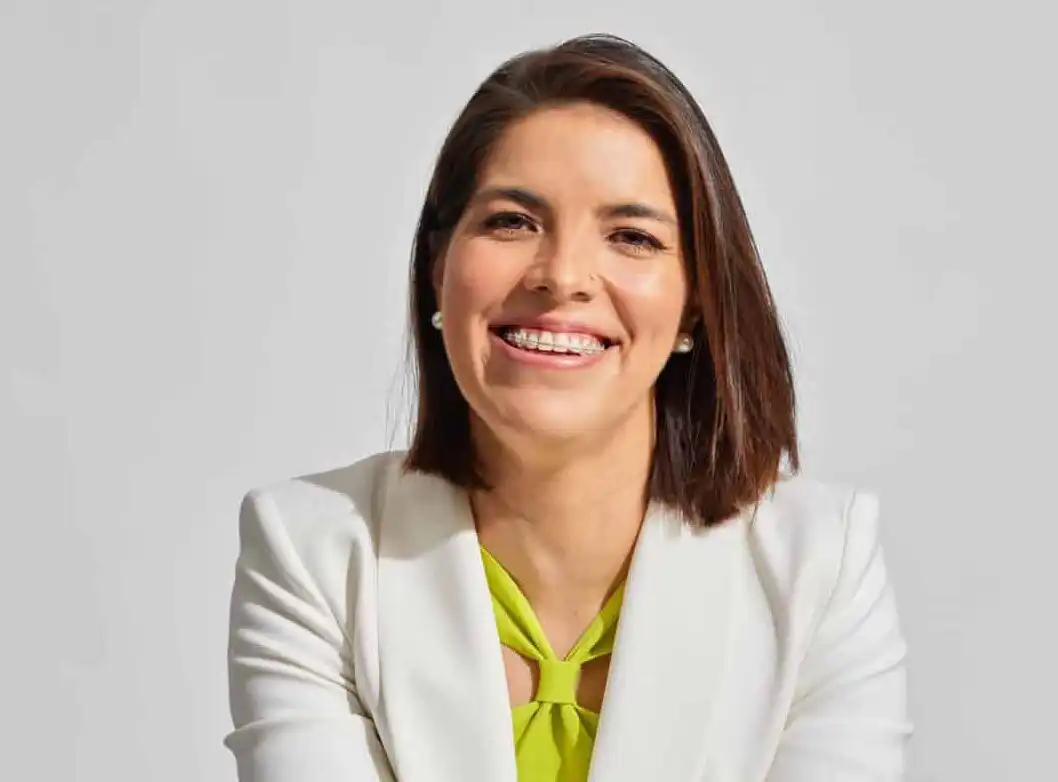Why AMSAC’s Marlene Ortiz traded in a lab coat for a seat at the advocacy table.
Marlene Ortiz Berrocal was completing her Ph.D in plant biotechnology at the Universidad Nacional Autónoma de México on route to beginning an academic career in research when her studies took an almost accidental right turn. It changed the entire direction of her career path, unexpectedly turning her into a powerful regulatory ally for Mexico’s seed sector.
“You are there on your bench, thinking that maybe you will save the world with your project, but the truth is different. I took a short course at Cornell University that focused on advocacy for biotechnology in agriculture. That’s where I came across all the real challenges that are out there. It is not enough to produce something in the lab. What happens after that in terms of meeting regulations and getting it to market — that is really the biggest challenge,” she says.
Ortiz graduated with a Ph.D, a deep awareness of the importance of having people with knowledge in plant science doing regulatory work, and a commitment to being part of that advocacy effort.
For the past six years since her graduation, Ortiz has handled the regulatory affairs portfolio for Mexico’s seed association, the Asociación Mexicana de Semilleros (AMSAC).
Top priorities in this role include advocating for science-based regulations around importing and exporting seeds, plant breeding innovations and intellectual property.
“Since the seed industry is regulated by the government, we serve as the representative entity and intermediary between the companies and the government,” Ortiz says. “We are translating the information to the decision makers.”
It’s a complicated role that requires Ortiz to put to work her deep scientific understanding, excellent communications skills, and ability to advocate and build relationships.
“Mexico is a particular country considering how some issues get politicized instead of being science-based,” she says. “You cannot persuade through science and data alone: decision makers rely more on who the messenger is and if there is trust and respect.”
When a new market draws attention or a regulatory framework is needed, Ortiz collaborates with seed companies and other stakeholders to provide recommendations to the regulators. Often, that includes working with academic and research institutions, too.
“In the end, it’s the farmers and the researchers who are going to use the new seeds or the new technologies to breed those new seeds, and they’ll benefit from them. We strive to work with agricultural scientific institutions so that researchers and students themselves will get more information and training around these topics. Then they can also become allies and advocate themselves,” she says.
Regulatory Challenges
Like the seed sectors in virtually every nation around the world, Mexico’s seed value chain is currently seeking a path forward on phytosanitary affairs for seed movement, intellectual property and new breeding techniques. That said, Mexico’s agricultural, political and social realities make its discussions unique.
Of all countries in the world, Mexico is ranked eleventh in food production and is one of the biggest vegetable producers and exporters globally. Quality, ever-improving seeds are vital for Mexico to maintain its production and improve its sustainability.
An increasing number of Mexican and international companies, as well as public institutions, are conducting research in a range of crops, seeking new varieties that best suit Mexican growing conditions. Unfortunately, Mexico currently has no framework for new breeding technologies. Without clear regulations and guidelines for the use of the latest tools for new variety development, innovation is difficult.
Helping Mexico’s government understand the importance of farmers and consumers having access to plant varieties developed with new breeding techniques has proven challenging, though not impossible, Ortiz says. She and AMSAC have had to tread lightly owing to the complexity of the political environment in the country.
“There’s a certain hesitance and a need for bigger commitment [by government], because for six years we have heard that the moment is not right,” Ortiz says.
Now, however, there may finally be real opportunity for change. Mexico just went through national elections. As the country’s president can only hold office for a single term, it was guaranteed that there would be a change of office. Both primary contenders for the top position indicated notably more openness to regulatory improvement.
“We know it’s very complicated. It’s been a long time, but we haven’t lost hope,” Ortiz says. “What we heard is that the party leaders from both sides are not opposed to what we are advocating for. They are in favor of technology, and they’re willing to listen to us and to work with us. I think that it will make a big difference.”

GMOs Versus New Breeding Techniques
One of outgoing President Obrador’s campaign promises back in 2021 was that Mexico would not grow GMOs. Obrador issued a decree banning the use of GM corn for human consumption and instructed the gradual substitution GM corn used for animal feed. For now, the topic remains mired in debate within the USMCA.
One group very intentionally not talking about the subject, however, is AMSAC. Though it seems an obvious advocacy topic for AMSAC and Ortiz to wade into, it’s one she says they steer very intentionally clear of.
“We don’t have anything against GMOs. They are a super powerful, useful technology,” Ortiz says. “But we are strategically focusing our efforts on the promotion of new breeding techniques and being the reference on that topic instead.”
Seed Piracy
Regulatory change is not the only advocacy work Ortiz keeps her attention on. She is also engaged in other priority efforts, including tackling seed piracy.
Seed piracy, unfortunately, has been increasing over time in Mexico. Anyone who doesn’t buy seed from an authorized, certified, professional distributor runs a growing risk that the ‘treated seed’ they buy is actually just dyed grain — usually feed grain. That not only means the farmer won’t get the seed treatment protection they think they are paying for, it also means they won’t get the yield or even the variety they expect.
“We’re trying to work with the government and with the seed chain, mostly through communications, so they can understand why it’s so important to buy seed from authorized distributors,” she says. “Because in the end, the one who loses the most from seed piracy is the grower.”
Communication is Critical
While most of Ortiz’ role focuses on advocating up to government, she is well aware of the vital necessity of building advocates, especially for new breeding techniques, amongst farmers and in the wider general population too.
“It cannot only be the industry pushing for change. We need as much help as we can get,” she says.
That’s why, alongside its regulatory advocacy work, AMSAC focuses on two other primary avenues to meaningful change: communications and education.
“We are trying to tackle those three — regulatory, communication and education — because we know it is necessary. It’s not only regulation, regulation, regulation; you also need to balance the public opinion,” she says.
To that end, AMSAC has begun hosting symposiums and workshops for journalists, students and the public on topics like the value of new breeding techniques. The organization has also invested in developing digital materials for use on channels like Facebook, YouTube, X (Twitter) and Instagram with the goal of spreading short, simple messages about seeds and seed production to the public.
“We have come to realize that people normally don’t think about where their food and their clothes come from,” Ortiz says. “We are trying to start from the very basic idea that everything comes from seeds.”
Looking Towards the Future
Ortiz is passionate about helping build effective, modern procedures to move seeds in a safe, simple way. Her commitment to that effort will hopefully have positive, profound and long-term impact across the entire Mexican seed value chain.
“Many of the laws that our regulations are based on are more than 20 years old,” she says. “Agriculture and the country are not the same as they were 25 or 30 years ago. In the end, I think what [the seed sector and what the government] want is the same, and we have the same concerns. For example, plant health wise, their job is to safeguard the country from the negative impact of pests. Our objective is to bring healthy, quality seeds to the growers. We just need to work together to develop a future that is good for everyone.”










